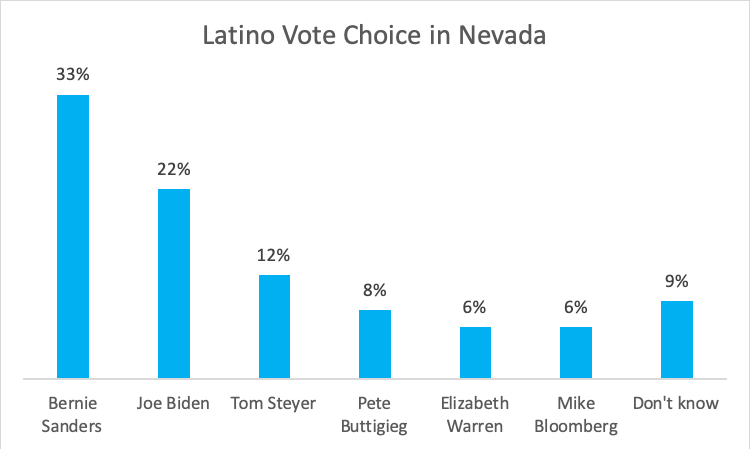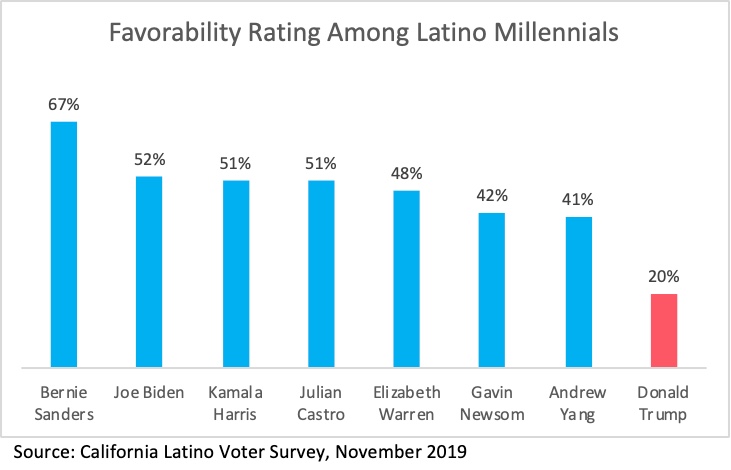A poll of Hispanic registered voters in Nevada conducted in July 2007 yielded critical data about the concerns of the Latino community in Nevada, and explained how organizations and candidates can reach out to these voters.
The Latino Decisions poll in Nevada is the first in its series of state polls. Latino Decisions is currently conducting research in California, and other states will follow during the summer of 2007. Polling is focused on states in which the Latino vote will play a critical role in the 2007 and 2008 elections. At a statewide level, Latino Decisions will provide independent, in-depth analysis on Latino opinions regarding policy issues and insight into Latino media habits.
The Latino Decisions poll is being conducted by Pacific Market Research, a Seattle research firm, and two prominent political science professors from the University of Washington in Seattle.
“Many media outlets and decision-makers do not realize the depth of diversity in demographics, values and lifestyles among the Latino community,” said Dr Gary Segura, a Professor of American Politics at the University of Washington and an author of the poll. “Our data and analysis allows candidates to access independent research to understand the concerns of the Latino community in each state and clarifies how candidates can best deliver their message.”
The Nevada poll was conducted in late July. Among the interesting findings were:
- Hillary Clinton holds a commanding lead over her Democratic rivals among Latino registered voters in Nevada, an advantage that appears to be driven by much higher name recognition. Clinton was the choice of 54.9% of self-identified Democrats and Democratic-leaners, while New Mexico Governor and fellow Latino Bill Richardson was second with 13.7%. Obama was third with just 6.4%, a showing that appears to be a function of low name recognition among Latino voters. Over 15.4% remain undecided.
- In hypothetical head-to-head match-ups against the two leading declared Republican candidates, Rudy Giuliani and Mitt Romney, both Clinton and Obama do extremely well. Among all Latino voters without regard to partisanship, Clinton outpolls Giuliani 65.8 to 17.4% (15.3% undecided), and she leads Romney 69.7 to 11.3% (17.1% undecided). Obama outpolls Giuliani 51% to 16.7% (29.2% undecided), and leads Romney 50.8 to 13.4% (32.9% undecided).
- Eliminating the undecided (and decline-to-state), Clinton receives between 79 and 86% of the two party vote against potential GOP rivals among those currently holding a preference. Obama’s share ranges from 75 to 79% of the two party vote. It is important to note that we project that a Latino Democratic vote share of 69% or greater in November 2008 would be sufficient to swing Nevada into the Democratic column, even if no other voter changed their preference from 2004.
- President Bush is viewed somewhat or very unfavorably by 63.9%, while Democrats in Congress are viewed favorably (somewhat or very) by 58.6%.
- Nevada’s caucus structure, as opposed to a traditional primary election, is a source of difficulty for Latino voters and appears likely to drive down participation. Only 14.8% of the respondents knew that the Nevada delegate selection process actually was a caucus. When asked if they would participate in the “primary” at the start of the survey, over 89% of these registered voters described themselves as “almost certain” to participate, a number that dropped to just over 33% once the caucus process was described. When asked if they preferred a traditional primary to a caucus, 70.6% said they preferred a primary, whereas only 16.8% expressed a preference for the caucus system.
- Voting Issues—when asked which issues would be most important in their presidential vote, Nevada Latinos overwhelmingly identified Immigration Policy (36.1%) and the War in Iraq (29.3%) as their biggest concerns, with Education (18.7%), Jobs and the Economy (13.8%) and Health Care (10.8%) rounding out the top 5.
- On the War, 73.9% report feeling that the War was “not worth fighting,” while the overwhelming policy preference was for immediate withdrawal (55.8%) or beginning withdrawal (21.4%). Just 8.7% favor the current policy, while another 9% favor escalation.
- On Immigration, almost half (58.6%) favor amnesty for those currently in the country, while another 26.3% favor some form of earned legalization and a path to citizenship. Only 12.8% favor a temporary guest worker program, and 6.8 % favor declaring illegal immigrants felons and deporting them.
The poll, with 23 minutes of questions, also covered a wide variety of issues, and dug deeper into the motivations behind the opinions. For example:
- The poll identified the main reasons for Hilary Clinton’s popularity among Latino voters in Nevada
- Participants identified which pubic figures’ and interest groups’ endorsements would most sway their votes
- The poll matched up Republican and Democratic hopefuls in hypothetical Presidential races, to see who would come out on top
Reports from the Nevada survey are available now, and the California analysis will be completed in the next week.


